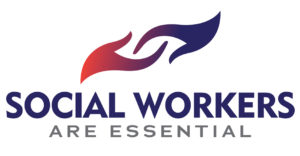Social Work Month in March highlights how the profession benefits our society.
This year’s theme is “Social Workers are Essential.”
Clifton Forge, VA – The Woodlands Health & Rehab Center is helping celebrate this year’s Social Work Month in March with the theme “Social Workers are Essential” to highlight the invaluable contributions social workers make in our society, especially as this nation addresses the Coronavirus pandemic.
The Social Work Month campaign will inform the public, policymakers, and legislators about how the nation’s social workers each day meet people where they are and help them live to their fullest potential.
According to the Bureau of Labor Statistics (BLS), social work is one of the fastest-growing professions in the United States. There are currently about 700,000 professional social workers in our nation, but that number is expected to rise to more than 800,000 by 2029, BLS said.
Social work has been around for more than a century and has made significant contributions to our nation. For example, social workers such as social reformer Jane Addams, former Labor Secretary Frances Perkins, and civil rights leaders Dorothy Height, Whitney Young, and Ida B. Wells have helped Americans secure voting rights, equal rights, Social Security, unemployment insurance, and other programs.
and Ida B. Wells have helped Americans secure voting rights, equal rights, Social Security, unemployment insurance, and other programs.
You will also find social workers throughout society – protecting children from abuse and neglect, providing mental health and substance use disorder treatment, assisting active-duty military, veterans and their families, in schools, helping corporations better serve their communities, and in community organizations as well as in local, state and government.
During the Coronavirus pandemic, social workers have also been on the frontlines along with doctors, nurses, grocery store staff, and other essential employees. For instance, social workers such as Rosanelly Garcia, a trauma social worker in the emergency room at Mount Sinai Hospital in Chicago, are helping people hospitalized because of the Coronavirus get the best quality care and the services they need to recover once they return to their families and communities. Other social workers such as Carla Monteiro in Massachusetts are helping people cope with mental
illness and substance use disorders during the pandemic, often doing this job remotely to keep everyone safer.
However, the social work profession faces challenges. There is a shortage of social workers in schools where they are needed to help young people cope with complicated issues such as trauma, poverty, the opioid addiction crisis, and the need for more resources to help students learn during the pandemic. And although social workers play a critical role in our nation’s health care and mental health system, they could be better compensated for the work they do, according to a 2019 report from the National Academies of Sciences, Engineering, and Medicine.
So, during Social Work Month, NASW will provide these tools to help promote the profession:
• A Social Work Month online toolkit at www.socialworkmonth.org
• Advice from experts on how social workers and their allies can tell stories on how essential the profession is in the media and social media.
• An official proclamation that you can get local, state, or federal politicians to endorse.
• Social Work Month merchandise from official vendor Jim Coleman Ltd. This year’s merchandise will include personal protective equipment or PPE.
• A video public service announcement that illustrates the essential work that social workers do can be shown in presentations or at events or shared on social media.
• A draft letter that can be shared with news media.
Social workers are often unsung heroes, but they play an essential role in helping people from all walks of life and backgrounds live life to the fullest. During social work month, we hope you will learn more about this amazing profession, say a kind word to the social workers in your lives, and advocate for policies and legislation that benefit the profession and the populations they serve.”


